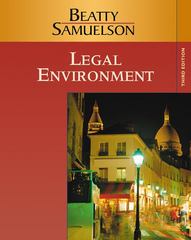Question
Section 11 Bilbo Baggins loved to have parties and give gifts. Since he came back from his adventures with Thorin Oakenshield and the dwarves with
Section 11
Bilbo Baggins loved to have parties and give gifts. Since he came back from his adventures with Thorin Oakenshield and the dwarves with lots of gold, he could afford to import magical toys and other special presents from the foreign country of Dale where they are made. The Shire (where Bilbo lives) and Dale have different currencies.
a) Draw the foreign exchange market for the Shire dollar. Be sure to show the equilibrium exchange rate and quantity traded.
b) Real income in the Shire increases. Draw what happens in the exchange rate market. What happens to the exchange rate and quantity traded? (Remember both sides of market can be affected)
c) The Shire's interest rates fall compared to the rest of the world. Draw what happens in the exchange rate market. What happens to the exchange rate and quantity traded? (Remember both sides of market can be affected)
d) The exchange rate for the Shire dollar is expected to rise in the future. Draw what happens in the exchange rate market. What happens to the exchange rate and quantity traded? (Remember both sides of market can be affected)
i hope this helps:
The quantity demanded of currency will be determined by two things - the exports effect and the expected profit effect. The exports effects shows how when the exchange rate is low, US exports are cheaper than foreign goods. With cheaper US exports, foreigners want to buy more US goods which are priced in dollars. So in order to pay for the increased quantity of US goods, a higher quantity of dollar currency is demanded. Conversely, if the exchange rate rises, US exports are more expensive, foreigners want to buy less US goods, and so they don't require as many US dollars to pay for them.
The expected profits effect comes from the speculative buying and selling of currencies by currency traders. Traders wish to buy a currency when the exchange rate is low so they can sell the currency when the rate rises in the future and make a profit. Thus the quantity demanded of a currency will be higher when the exchange rate is low. Conversely, when the exchange rate is high, if traders bought the currency now, they would more likely make a loss, so the quantity demanded is low.
Changes in the demand for currency will depend on:
World demand for US exports. An increase in world demand for US exports (for reasons other than the exchange rate like changes in foreign real national income) means foreigners will need more US dollars to pay for the higher exports. The demand curve for US dollars will shift out and to the right and the equilibrium exchange rate will increase.
Step by Step Solution
There are 3 Steps involved in it
Step: 1

Get Instant Access to Expert-Tailored Solutions
See step-by-step solutions with expert insights and AI powered tools for academic success
Step: 2

Step: 3

Ace Your Homework with AI
Get the answers you need in no time with our AI-driven, step-by-step assistance
Get Started


